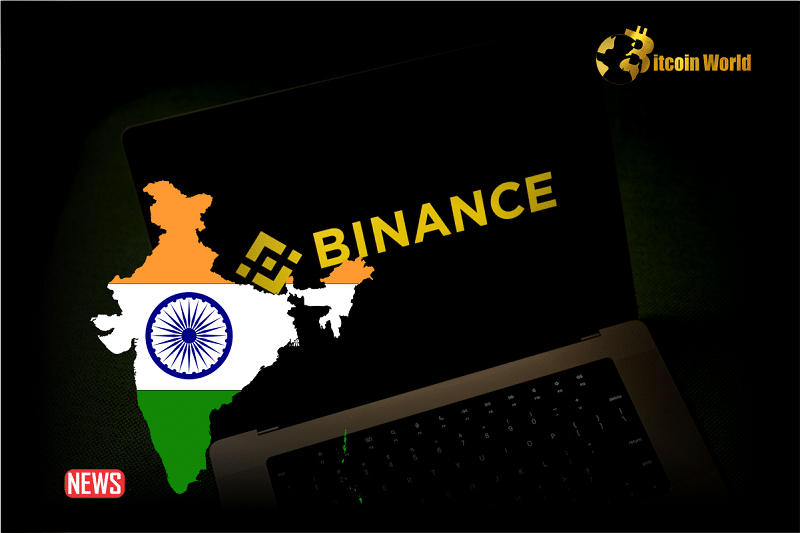The Indian crypto market is currently experiencing a seismic shift. The recent government crackdown, blocking access to major international exchanges like Binance, KuCoin, Huobi, and Kraken, has sent shockwaves through the industry. What does this mean for Indian crypto investors and the future of digital assets in the country?
Emergency Meetings and Market Turmoil
Reports indicate that Indian crypto exchanges are in crisis talks, scrambling to understand and mitigate the impact of these blocks. The situation is particularly critical due to the reliance of many Indian platforms on Binance for liquidity. This dependence creates a ripple effect, potentially disrupting trading and impacting user access to funds.
Pushpendra Singh, founder of SmartViewAi, highlighted the gravity of the situation on X (formerly Twitter):
Breaking: Indian Crypto Exchanges in Crisis Talks After Govt Blocks Binance, Kucoin
– Indian exchanges heavily rely on Binance order books to match crypto transactions.
– Potential disruption if Binance's internal API is blocked for Indian exchanges.
– Many rely on Binance for… https://t.co/eJ0c94K4tA— Pushpendra Singh (@pushpendrakum) December 29, 2023
Why the Crackdown? FIU’s Show Cause Notice
The government’s actions stem from concerns over regulatory compliance. The Financial Intelligence Unit (FIU), under the Finance Ministry, issued show cause notices to nine offshore crypto exchanges, including those blocked, alleging non-compliance with Indian anti-money laundering (AML) laws.
Exchanges Facing Scrutiny:
- Binance
- KuCoin
- Huobi
- Kraken
- Gate.io
- Bittrex
- Bitstamp
- MEXC Global
- Bitfenex
The FIU asserts that these exchanges have been operating in India illegally by failing to register and adhere to local regulations.
Impact on Indian Crypto Exchanges
The blocking of these major international exchanges poses several challenges for the Indian crypto ecosystem:
- Liquidity Crunch: Many Indian exchanges rely on Binance’s order books for matching crypto transactions. Blocking Binance’s API could disrupt this process and reduce liquidity.
- Limited Trading Options: Indian investors will have fewer options for trading a wide variety of cryptocurrencies.
- Increased Scrutiny: The government’s actions signal a stricter regulatory environment for crypto in India, potentially discouraging innovation and investment.
What Does the Future Hold?
The situation remains fluid, and the long-term consequences are yet to be seen. However, it is clear that the Indian government is taking a firm stance on crypto regulation. Indian exchanges will need to adapt quickly to the changing landscape and prioritize compliance to ensure their survival. Investors should exercise caution and stay informed about the evolving regulatory environment.
See Also: India Tightens Its Regulatory Measures Against Virtual Digital Asset Service Providers (VDA SPs)
Actionable Insights
- Stay Informed: Keep up-to-date with the latest regulatory developments in the Indian crypto space.
- Diversify: Consider diversifying your crypto holdings across multiple platforms to mitigate risk.
- Compliance Matters: Choose exchanges that prioritize regulatory compliance and transparency.
In Conclusion
The Indian crypto market is at a crossroads. The government’s crackdown on international exchanges presents both challenges and opportunities. While the short-term impact may be disruptive, it could also pave the way for a more regulated and sustainable crypto ecosystem in the long run. The key will be for Indian exchanges and investors to adapt to the changing landscape and prioritize compliance and responsible innovation.
Disclaimer: The information provided is not trading advice, Bitcoinworld.co.in holds no liability for any investments made based on the information provided on this page. We strongly recommend independent research and/or consultation with a qualified professional before making any investment decisions.


